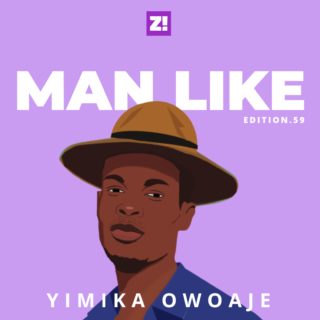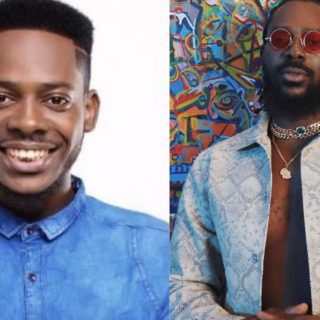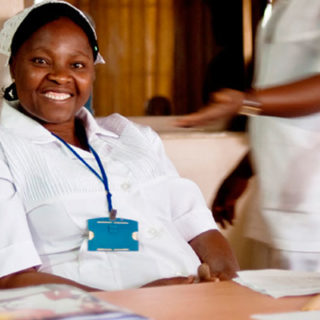What does it mean to be a man? Surely, it’s not one thing. It’s a series of little moments that add up. Man Like is a weekly Zikoko series documenting these moments to see how it adds up. It’s a series for men by men, talking about men’s issues. We try to understand what it means to “be a man” from the perspective of the subject of the week.
Today’s Man Like is Akabogu Dalu, a 29-year-old finance guy. He talks about wanting to become a boxer, how going broke taught him to prioritise his family and how he has changed since he got married.
What do you do?
I do a lot of interesting things. My day job is working as a private equity portfolio manager and advisory lead. Other times, I trade. I try as much as possible to be in every area of finance. I also make investments in startups.
Interesting.
Funny enough, I didn’t see myself ending up in the finance sector when I was growing up. I was a science student so I thought I was going to become a doctor, then I thought I’d be a civil engineer, boxer, and even boxing promoter. I ended up studying finance at the university because I was good at economics.
Boxer? LMAO. How?
I’ve always been obsessed with boxing. I was so good at predicting the winner of a match just by looking at the boxers’ footwork. I became an amateur boxer when I was 19 and was supposed to represent Nigeria at the 2012 Olympics.
However, I went through a lot in the training camp and to top it all off, my coach demanded about half of the ₦30k stipend the Nigerian Boxing Federation gave me. That’s the moment I knew that boxing in Nigeria wasn’t for me.
Later that evening, I saw one of my friends on Facebook receiving congratulations for a finance job. That’s when I realised that I wanted to go into finance, after all, I had graduated one of the best in my class in finance.
What happened next?
I got a job as a corporate banker at a popular commercial bank. It paid me well, but I hated it.
Why?
I wanted to do core finance. But my role as a corporate banker meant that I was just a glorified marketer. Only people who brought in major clients to open accounts were promoted and I wasn’t learning anything. You were only as valuable as the amount of money you could bring in. I was frustrated with the job, even though it paid well according to my standards at the time. My first salary was the biggest amount that had ever entered my account and I made sure to enjoy myself with the money. I was flexing, pursuing women of all shapes and sizes, and clubbing.
So after three years, I quit the job at the bank after two years. It turned out to be the roughest year of my life.
Omo. How?
That was the year I saw poverty face-to-face. I had saved up four months worth of salary by then and thought that would be enough till I got another job. How wrong I was. I ended up remaining unemployed for almost a year. All the women I was chasing ghosted me. My savings were wiped out. I became so broke, my clothes were becoming rags and I couldn’t afford to eat on some days. I used to use an anonymous account on Twitter to beg for money. That’s how bad it was.
That must have been so hard. How did you get by?
My younger brother was there for me a lot during that year. He was just a fresh graduate at the time but he did his best to support me. One time, he made ₦10k from sports betting and he gave me half of it. I was moved to tears because when I had money, I hardly took care of him or my family. That was when I realised how much I had not been supportive of my family. They weren’t a priority to me while I was making money because I was focused on myself.
I promised my brother, “When I get my next job, I’m going to become really good at it, make enough money and send you out of this country.”
That was when I realised that at any point in time, the first quadrant of your income should be reserved for people who are/were pivotal to your growth as a person. Always make sure your people are okay. People I thought were my friends ghosted me and the only support I had was my family.
What happened next?
After a year unemployed, I got another job in an investment house and things started picking up. I said, “This job, I will die here. I will learn everything there is to learn and become incredibly good at it. I’ll make sure I never stay at home unemployed again.” I was always the first to get to the office and the last to leave. I was honing all my skills with the fear of poverty on my mind. I didn’t have a life; I was always on YouTube learning a skill or the other in finance.
From there, I moved to a corporate consulting firm and from there I moved to a private equity firm where I’m currently a Vice President.
Congratulations, man. What was your game plan?
It was full-on hard work. I’m not the smartest guy, but you can’t outwork me so I used that to my advantage. Now, I’m in a better place financially. I fulfilled the promise I made to my brother and sent him abroad this year. I work hard to make sure I can provide for my support system. If I hadn’t had that tough period in 2016, I probably still wouldn’t have prioritised their welfare the way I do now.
It’s why I’m equivocal on the black tax conversation. My sisters treat me like their personal ATM and honestly, I don’t mind. I prefer they ask me than ask from some random person outside. I see it as my responsibility, a kind of repayment for all the support they’ve given me. They were pivotal to my development, the least I can give them is my financial support.
What else do you do?
I’m focused on making money so they never have to want anything. Asides from my day job, I trade stocks, bonds and other risky ventures, like investing in startups. As a younger man, I used to take a lot of risks. I lost a lot of money and I made a lot of money. I used to adhere to the “Go big or go home” principle. I don’t do that as much anymore because now I consider how the decision is going to affect my family before making it.
What does your family look like?
I have two brothers and two sisters, alongside my mother and father.
What was growing up like?
It was a decent upbringing. My dad is from a family of spare parts dealers and was also one himself so he swore that none of his kids would end up as a parts dealer. My dad made sure we were properly educated. We were doing fine until our apartment burnt down in 2005 and my father lost all his goods. We were pretty much bankrupt. It was a hard reset for my family.
Sorry to hear about that. How’s your relationship with your dad?
We’re quite distant. I wasn’t close to him because I was scared of him. I can’t tell him certain things I would tell my mom because we didn’t have their relationship. For example, I didn’t tell my dad when I was unemployed but my mom knew and always prayed and encouraged me.
There was a time she had to undergo surgery and I felt terrible because I was the only one who couldn’t contribute to paying for the procedure. I’m glad that’s all history now.
That’s sad. On to lighter topics. What’s your romantic life like?
Whew. I’m married to the best woman ever.
Congratulations! What’s the most important way you’ve changed as a man since you got married?
On the night of my traditional wedding, I told myself, “See, this woman was on her own, enjoying her life. I convinced her to leave her parents’ house to come and marry her, which means that my only Key Performance Indicator (KPI) is to make sure she’s always happy.” This means my default mode is providing for her emotionally and financially to the best of my abilities.
Marriage also changed my perception of risk. When I was single, I used to make very risky financial moves. Now, I think about the implications my decisions will have on her and my unborn kids.
God when? How do you relax after a long week of work?
I work very hard in a high-pressure environment; about 50-60 hours a week. So I take unwinding very seriously. At least, every two weeks, I get a room in a 5-star hotel and just relax for the weekend. I spend them in the hotel bed watching boxing videos. I also like to laugh on Instagram.
God when?
Lool.




